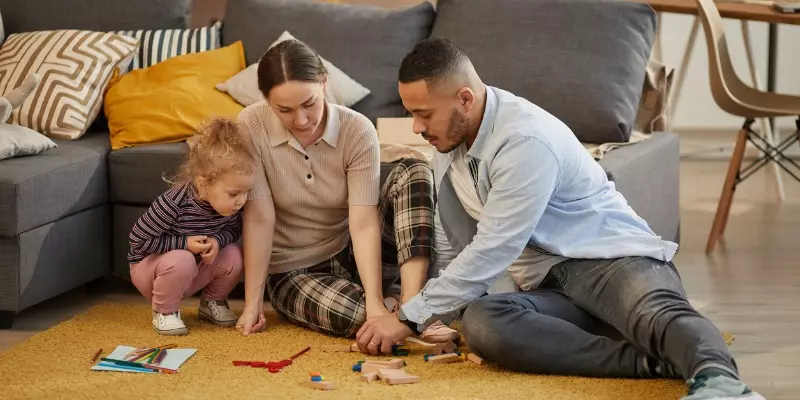
As the coronavirus continues to spread around the globe and more people hunker down at home, you may get sucked into binge-watching TV shows or endlessly scrolling through your social media feed. Neither of these activities is good for your brain, and they could increase feelings of stress, anxiety, and depression.
To boost your mood, fire up your brainpower, and feel more productive, try these 11 amazing brain healthy activities.
1. Have an indoor dance party.
Get your blood pumping and the oxygen flowing to your brain with an indoor dance party. Just turn up your favorite tunes and start moving. Coordination activities like dancing activate the brain’s cerebellum, an area associated with thought processing. Dancing can be a helpful treatment for depression, according to a 2017 study, and research in The New England Journal of Medicine shows that it reduces dementia risk by 76%.
2. Practice random acts of kindness.
A 2016 study shows that doing things for others boosts happiness by activating the release of dopamine in the brain. A simple way to do this at home is to write letters to seniors in nursing homes. Many assisted living facilities are tightening visitor regulations or banning all visitors. You can brighten up a senior’s day—and your own—by sending a greeting card.
3. Let food be your medicine.
Your brain (and your immune system) needs nutrient-dense foods to function optimally. Try these free recipes from nurse and bestselling author of The OMNI Diet and The Brain Warrior’s Way Cookbook Tana Amen to boost your brain health. Whip up a yummy protein smoothie—like the Focus & Energy Smoothie—to start your day. Make an awesome anti-inflammatory salad—like Tana’s Rainbow Chard Salad—that’s packed with prebiotics (dietary fiber) such as cabbage and carrots. Boost immunity with onions and garlic in soups and stews like Healthy Turkey Chili. And satisfy everybody’s sweet tooth with a brain healthy dessert, like Nutty Butter Cups.
4. Learn the “Loving Kindness Meditation.”
This meditation is intended to develop feelings of goodwill and warmth toward others. It has been found to quickly increase positive emotions and decrease negative ones, reduce symptoms of posttraumatic stress disorder (PTSD), increase gray matter in the emotional processing areas of the brain, and boost social connectedness. Here’s how you do it.
Take 2-3 deep breaths, taking twice as long to exhale. Let any worries or concerns drift away and feel your breath moving through the area around your heart. As you sit, quietly or silently repeat the following or similar phrases:
May I be safe and secure
May I be healthy and strong
May I be happy and purposeful
May I be at peace
Let the intentions expressed in these phrases sink in as you repeat them. Allow the feelings to grow deeper.
After a few repetitions, direct the phrases to someone you feel grateful for or someone who has helped you:
May you be safe and secure
May you be healthy and strong
May you be happy and purposeful
May you be at peace
Next, visualize someone you feel neutral about. Choose among people you neither like nor dislike and repeat the phrases.
Next, visualize someone you don’t like or with whom you are having a hard time. Kids who are being teased or bullied at school often feel quite empowered when they send love to the people who are making them miserable.
Finally, direct the phrases toward everyone universally: “May all beings be safe and secure.”
You can do this for up to 30 minutes. It’s up to you.
5. Learn something new.
The best way to slow the brain aging process is to learn something new. Take an online course (like the Change Your Brain Masters Course to conquer anxiety, depression, obsessiveness, anger, and memory problems), download a foreign language app, or read a book like Dr. Amen’s The End of Mental Illness, which offers over 100 simple things you can to heal your brain and prevent or reverse the problems that are making you feel sad, mad, or bad.
6. Create an emotional rescue playlist.
Music can soothe, inspire, improve your mood, and help you focus. After evaluating more than 800 people, researchers have found that people listen to music to regulate energy and mood, to achieve self-awareness, and to improve social bonds. In his powerful book, The Secret Language of the Heart, Barry Goldstein reviews the neuroscience properties of music. “Music stimulates emotional circuits in the brain … Releases oxytocin, the cuddle hormone, which can enhance bonding, trust, and relationships. Soothe your stress with the following research-based playlist (without lyrics because words can be distracting).
Sonata for Two Pianos in D Major (K. 448) – Mozart
Clair de Lune – Debussy
Adagio for Strings – Samuel Barber
Piano Sonata No. 17 in D Minor (“The Tempest”) – Beethoven
First Breath After Coma – Explosions in the Sky
Adagio for Strings – Tiësto
Fanfare for the Common Man – Aaron Copeland
Weightless – Marconi Union
Flotus – Flying Lotus
Lost in Thought – Jon Hopkins
The Soundmaker – Rodrigo y Gabriela
See – Tycho
Spectre – Tycho
If you’re looking for inspiration, relaxation, stress relief, background music for meditation, or something to spark your creativity, you can find instrumental music on the BRIGHT MINDS: Memory Rescue Music CD.
7. Teach your dog a new trick.
This is a wonderful time to enhance your brain and activate the brains of your furry family members. Studies have found many mental health benefits of pet ownership. For example, petting your pooch triggers the release of feel-good neurotransmitters serotonin and dopamine, and it lowers levels of the stress hormone cortisol. Just looking in your dog’s eyes produces the bonding chemical oxytocin.
8. Start a garden.
You don’t need access to a yard to get your green thumb in action. There are many indoor garden kits available that will allow you to grow brain healthy bell peppers, microgreens, and herbs (think basil, oregano, and rosemary). A 2019 study found that gardening was associated with a significant increase in levels of brain-derived neurotrophic factor (BDNF), which is associated with cognitive function and memory.
9. Don’t just exercise, “socialcize.”
Social isolation drains your brain, but social distancing doesn’t have to mean loneliness and solitude. Exercise your social skills with video conferencing, Instagram Live, FaceTime chats, and more.
10. Clear your home of environmental toxins.
Exposure to toxins can harm your brain and increase the risk of depression, suicide, ADD/ADHD, learning problems, memory problems, brain fog, autism, temper outbursts, psychotic behavior, and dementia. Download the Think Dirty app and dump the chemical-laden personal care products and household cleaners that can harm your brain.
11. Seek professional help if you need it.
If you’re really struggling during this time but don’t want to leave your home, take action to enhance your brain and mental wellbeing with video therapy sessions.
If you’re struggling with anxiety, panic attacks, depression, or other mental health issues, you aren’t alone—45% of Americans say the coronavirus pandemic has impacted their mental health. Just because you’re sheltering at home doesn’t mean you have to wait for the pandemic to be over before seeking help. In fact, during these uncertain times, your mental well-being is more important than ever and waiting to get treatment is likely to make your symptoms worsen over time.
At Amen Clinics, we’re here for you. We offer mental telehealth, remote clinical evaluations, and video therapy for adults, children, and couples, as well as in-clinic brain scanning to help our patients. Find out more by speaking to a specialist today at 888-568-6141. If all our specialists are busy helping others, you can also schedule a time to talk.





thanks Hava for sending me this email. It was very interesting. I read the entire email twice and must admit that it does not apply to me. I am happy, well adjusted and adapting to our current world with no difficulties. Somehow, I have kept busy with my computer, T.V. reading, talking to friends on the phone, housework, etc. I am an easy going lady and am very mello these days.
Love,
Helen
Comment by Helen Lerner — April 27, 2020 @ 7:55 AM
Very good thoughts for everyone. During elementary research, one discovers the difference between meditation and contemplation. In discursive meditation, mind and imagination and other faculties are actively employed in an effort to understand our relationship with God…Contemplative prayer is taking time frequently to be alone with Him who loves us…Also, one does not need to purchase skin tight garb, a bed role, watch a facilitator electronically, or travel any distance…Mentioning the importance of Prayer, although not politically correct…is valuable…
Also, random acts of kindness, again superfluous taken in today’s context…Practicing gratitude in one’s daily life, extends to kindness…If one is truly grateful, one cannot help but be kind…This should be done automatically…without fanfare or any expectation of reciprocal gratitude or gain… For example, focusing on the children in your home or others needing assistance…The elderly in your home or others…and most of all loving your neighbors and forgiving those who may have trespassed against you…
No need to post…I realize it not politically correct…but it helps to comment…
Peace…
Comment by Dr. Henry Sinopoli — April 28, 2020 @ 6:14 AM
It's enormous that you are getting ideas from this piece of writing as well
as from our discussion made here.
Comment by Aracely — November 15, 2023 @ 1:43 AM